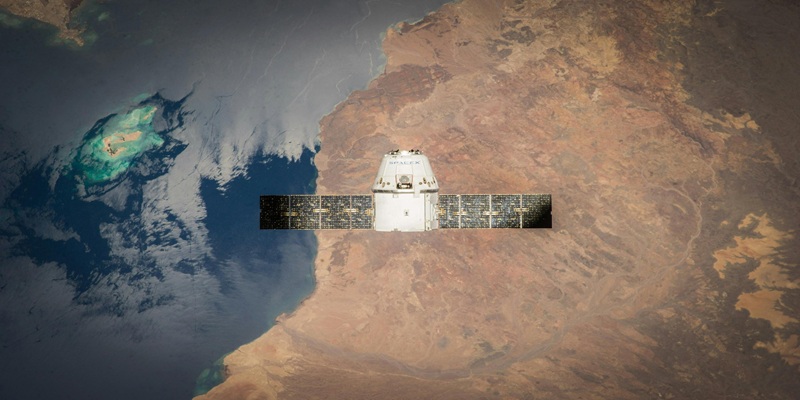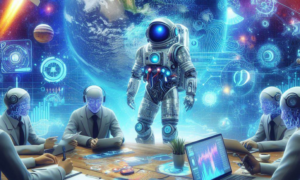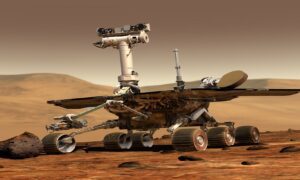Artificial intelligence (AI) is significantly transforming numerous industries, and space exploration is one of the most promising areas benefiting from its advancements. AI is not just a futuristic concept—it is actively revolutionizing how scientists, engineers, and astronauts explore and understand the universe. From autonomous navigation to real-time data analysis, AI is making space missions more efficient, reducing risks, and enabling deeper space travel. As we venture further into the cosmos, AI will continue to be a cornerstone of space exploration, ensuring precision, reliability, and enhanced decision-making capabilities.
AI in Mission Planning and Management
Space missions are complex and require meticulous planning. Every detail must be carefully calculated to ensure a successful launch, safe journey, and effective operations in space. AI plays a crucial role in optimizing mission planning, enhancing predictive modeling, and reducing human errors.
Improving Trajectory Planning
AI-powered algorithms analyze vast amounts of data to calculate the most efficient flight trajectories. These calculations help optimize fuel consumption, reduce travel time, and minimize the risk of collision with space debris. Machine learning models, trained on past mission data, allow scientists to improve planning accuracy and mitigate potential hazards before launching a spacecraft.
Enhancing Autonomous Decision-Making
Long-duration space missions, especially those beyond Mars, require autonomous decision-making capabilities. Due to the communication delay between Earth and deep-space probes, AI systems onboard must handle unforeseen circumstances without immediate human intervention. AI-driven onboard systems can assess real-time conditions, adjust flight paths, and respond to emergencies, ensuring mission success without constant human oversight.
AI in Spacecraft Navigation and Communication
The vastness of space and the difficulty of manual spacecraft navigation make AI an invaluable tool in improving control systems and communications. AI enhances the precision of spacecraft operations, allowing them to travel vast distances with minimal human input.
Autonomous Spacecraft Navigation
Navigating through space requires avoiding obstacles, detecting environmental changes, and maintaining accurate positioning. AI-powered navigation systems, like those used in the Perseverance rover, process real-time data from sensors and cameras to make autonomous navigation decisions. These systems help spacecraft land safely on alien terrains, explore planets, and conduct scientific investigations without constant human guidance.
Optimizing Space Communication
Transmitting data across millions or even billions of miles presents numerous challenges, including signal degradation and delays. AI optimizes communication efficiency by enhancing signal processing, data compression, and transmission accuracy. Machine learning algorithms detect errors in data streams and correct them before they reach mission control, ensuring smooth and reliable communication between spacecraft and Earth.
AI in Astronomical Research and Data Analysis
The universe is vast, and the sheer amount of data collected from telescopes and satellites is overwhelming. AI significantly enhances our ability to analyze and interpret this data, leading to groundbreaking discoveries in astrophysics and planetary science.
Discovering Exoplanets
AI-powered algorithms are revolutionizing exoplanet discovery. By analyzing data from space telescopes like Kepler and TESS, AI can detect subtle changes in starlight patterns, identifying planets orbiting distant stars. Traditional methods required manual analysis of light curves, but AI now enables the rapid and accurate identification of exoplanets, vastly increasing the number of confirmed discoveries.
Classifying Galaxies and Celestial Bodies
AI-driven neural networks assist astronomers in classifying galaxies based on their shape, size, and composition. By processing astronomical images, AI can distinguish between spiral, elliptical, and irregular galaxies, providing valuable insights into cosmic evolution. Additionally, AI helps detect black holes, supernovae, and other celestial phenomena, accelerating scientific breakthroughs.
AI in Space Robotics and Exploration
Space robotics is another domain where AI is making significant advancements. Robotic systems equipped with AI can perform intricate tasks, conduct experiments, and explore celestial bodies with high precision.
Mars Rovers and Robotic Explorers
AI-powered rovers, such as Perseverance and Curiosity, rely on advanced machine learning models to navigate Mars’ challenging terrain. These rovers use AI to analyze soil samples, identify mineral compositions, and detect potential biosignatures—indicators of past or present life. AI-driven autonomy ensures these robotic explorers adapt to unexpected obstacles without waiting for human commands from Earth.
Space Station Maintenance and Assistance
Robotic assistants, such as Canadarm2 on the International Space Station (ISS), utilize AI to perform maintenance tasks, conduct inspections, and repair equipment. AI-powered robotic arms reduce astronaut workload and enhance operational efficiency. Future space stations may deploy even more AI-driven robots to support long-duration missions and prepare habitats for human colonization.
AI in Deep-Space Exploration and Astrobiology
Deep-space exploration presents unique challenges, including extreme environments, long communication delays, and unknown cosmic phenomena. AI is crucial in overcoming these obstacles and expanding humanity’s reach into the unknown.
Autonomous Deep-Space Probes
AI allows deep-space probes, such as Voyager and New Horizons, to operate independently for extended periods. These probes encounter unpredictable conditions, and AI-driven systems enable them to analyze their surroundings, adjust navigation, and send critical data back to Earth without human intervention. This autonomy is essential for exploring the outer reaches of our solar system and beyond.
Searching for Extraterrestrial Life
AI is instrumental in the search for alien life. AI algorithms process data from radio telescopes, identifying unusual signals that could indicate intelligent extraterrestrial activity. Projects like SETI (Search for Extraterrestrial Intelligence) rely on AI to sift through massive amounts of radio wave data, increasing the likelihood of detecting signs of extraterrestrial civilizations.
AI in Space Manufacturing and Human Colonization
As humanity looks toward establishing permanent settlements beyond Earth, AI will play a fundamental role in ensuring the sustainability and efficiency of space colonization efforts.
AI-Driven 3D Printing and Construction
Building structures on the Moon or Mars using AI-powered 3D printing technology is becoming a reality. AI-driven autonomous construction robots can use local resources, such as lunar or Martian soil, to build habitats, reducing the need to transport heavy materials from Earth. This innovation will be crucial for setting up long-term colonies.
Challenges and Ethical Considerations
Despite AI’s numerous benefits, its integration into space exploration is not without challenges. Reliability is a significant concern, as AI errors in critical missions could lead to catastrophic failures. Additionally, ethical considerations must be addressed, especially regarding AI’s autonomy in decision-making. Space agencies must implement robust safeguards to ensure AI remains under human control while maximizing its benefits.
Conclusion
AI is transforming space exploration, making missions more efficient, autonomous, and insightful. From optimizing navigation and communication to aiding in astronomical discoveries and deep-space exploration, AI is an indispensable tool for reaching new frontiers. As technology continues to advance, AI’s role in space will only expand, bringing humanity closer to the dream of interplanetary travel and colonization. The universe holds endless mysteries, and with AI as our companion, we are better equipped than ever to uncover its secrets and push the boundaries of human knowledge.



































